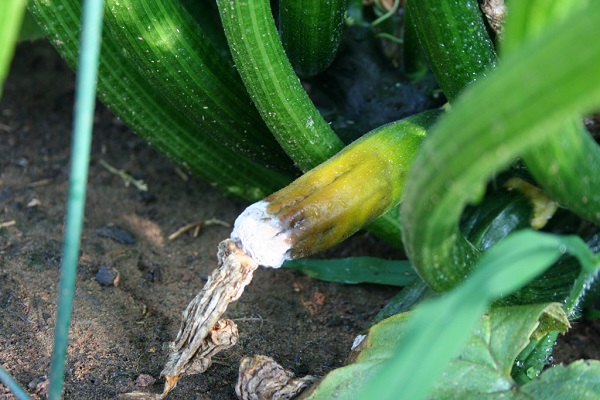 Some beginner growers believe that it is enough to plant zucchini in the spring, sometimes water it and you can harvest a delicious fruit. In fact, this is not quite so. Zucchini requires some care and, if you neglect these requirements, their fruits can rot right on the vine.
Some beginner growers believe that it is enough to plant zucchini in the spring, sometimes water it and you can harvest a delicious fruit. In fact, this is not quite so. Zucchini requires some care and, if you neglect these requirements, their fruits can rot right on the vine.
Content
Why zucchini rot - reasons
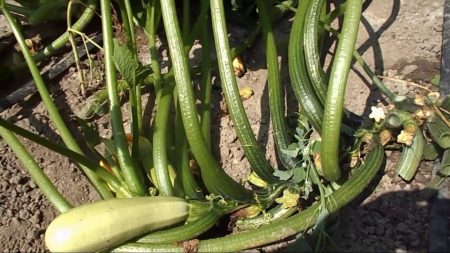 In the process of growth and development, zucchini form many ovaries. Some of them may fall over time, which is considered quite normal. The plant leaves as many ovaries as it can provide with nutrients for the formation of quality fruits.
In the process of growth and development, zucchini form many ovaries. Some of them may fall over time, which is considered quite normal. The plant leaves as many ovaries as it can provide with nutrients for the formation of quality fruits.
But it so happens that quite large and almost formed ovaries suddenly begin to decay right on the bushes. This negative phenomenon cannot be considered normal, and it has its own reasons.
The main causes of rotting are as follows:
- crop rotation neglect;
- excess moisture in the soil;
- Too much fertilizer applied to the soil
- diseases and pests;
- deficiency of boron or iodine;
- lack of lighting;
- unsuitable soil type for zucchini;
- inappropriate weather conditions;
- thickened planting.
When we see the rotting fruits of zucchini in the garden, then most likely this disaster occurred for one of the above reasons.
Wrong crop rotation
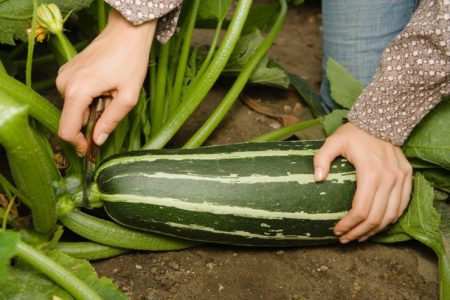 Some gardeners have no idea what crop rotation is and why it needs to be followed. Meanwhile, this is a scientifically based alternation of cultures in time and space.
Some gardeners have no idea what crop rotation is and why it needs to be followed. Meanwhile, this is a scientifically based alternation of cultures in time and space.
If we take into account a separate garden bed, then every year different crops should be grown on it, which are not related to each other. For example, if last season you grew a representative of the Pumpkin family (melon, cucumber, pumpkin, zucchini, watermelon) on the garden, then in the current season place a representative of the Paslyonov family on it (potatoes, tomato, pepper, eggplant).
Crop rotation must be observed for two main reasons:
- plants in the process of growth release toxic compounds into the soil;
- pathogens and harmful insects remain to winter in the soil.
Thus, planting the same crop for 2-3 years in a row on the same bed, you create nutrition problems for it and provoke defeat by its pests and diseases.
Excess moisture
If the summer was rainy, then young zucchini are rotting. The same thing happens if you over-water the crop. When the bed is waterlogged, a greenhouse effect is created, which also contributes to the decay of the fruit.
Zucchini rot if they lie on damp ground. In this case, they are saved by placing straw or thin sections of boards under them. At the same time, one must remember that slugs will be collected there - they need to be disposed of.
Watering zucchini should not be on top, but under the root. And do not pour water from the bucket with a powerful jet. It can erode the soil above the roots, which will also negatively affect the condition of the plant.
Fortunately, not all summer seasons are rainy and have long cooling periods.
Excess nutrients in the soil
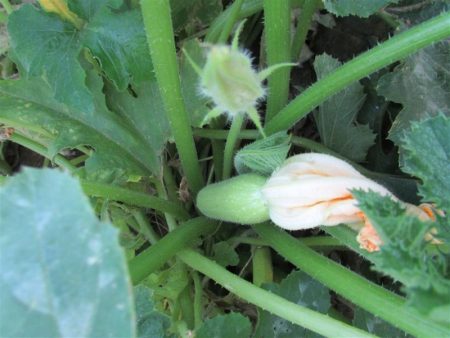 If the soil is too mangled or seasoned with a large amount of mineral fertilizers, this contributes to the formation of an overly powerful bush with large leaves. Sunlight, however, cannot penetrate into the depths of the bush and there is an increased humidity favorable for the development of bacteria and fungi, leading to rotting fruits of the squash.
If the soil is too mangled or seasoned with a large amount of mineral fertilizers, this contributes to the formation of an overly powerful bush with large leaves. Sunlight, however, cannot penetrate into the depths of the bush and there is an increased humidity favorable for the development of bacteria and fungi, leading to rotting fruits of the squash.
Initially, the ovaries of zucchini are rotted, then the larger fruits rot. If no action is taken, the crop will be lost. Dressing zucchini should be performed in accordance with the recommended norms and doses.
Trace deficiency: boron and iodine
Fruits of zucchini can be rotted due to the lack of certain trace elements in the soil. This usually happens when nutritional elements such as boron and iodine are in short supply.
To make up for the lack of boron, boric acid must be used. To prepare a working solution, 1 g of the drug is diluted in 5 l of water. Replenishment of boron deficiency also occurs when complex fertilizers containing a whole set of trace elements, including boron, are introduced into the soil or sprayed on the leaves.
Iodine deficiency in the soil solution also adversely affects squash. For this reason, the fruits of zucchini can also rot.
You can restore the optimal balance of iodine if you spray the squash bushes with a solution of potassium iodide.
Diseases and Pests
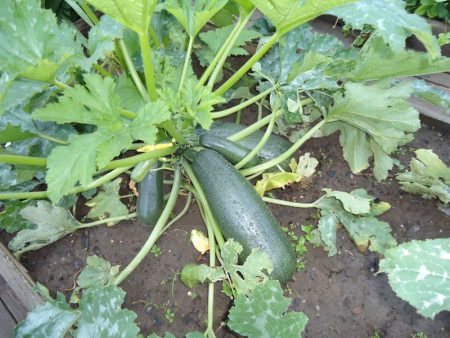 Fungal diseases such as powdery mildew, white and gray rot, peronosporosis can also cause rotting of squash.
Fungal diseases such as powdery mildew, white and gray rot, peronosporosis can also cause rotting of squash.
With the defeat of powdery mildew on the fruits and leaves, a white coating and depressed spots appear. The disease does not spare young leaves and fruit ovaries. Powdery mildew progresses with large temperature fluctuations, when it is very cool at night, and unbearably hot during the day, and also when the culture is watered with cold water.
The development of powdery mildew and other fungal diseases provokes excessive application of nitrogen fertilizers. And phosphorus and potassium fertilizers, on the contrary, increase the resistance of zucchini to fungal diseases.
During the growing season, you need to regularly inspect the bushes of squash for the detection of fungal disease in the initial stages, in order to prevent this in a timely manner. Better yet, take preventative measures to prevent zucchini diseases.
In order to prevent fungal diseases, you can spray zucchini on the leaves with an infusion of garlic (4 chopped heads in 10 liters of water).
Unsuitable weather
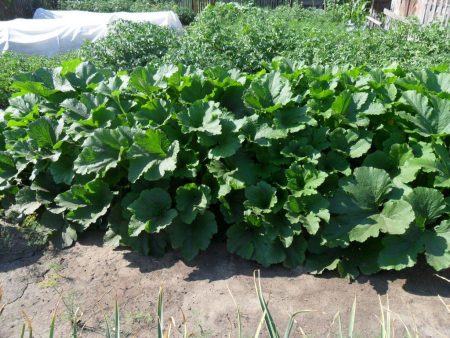 If you carefully study the zucchini, it turns out that this is a southern culture, thermophilic and does not tolerate cold snap and high humidity. When during the summer there are several periods of cooling and often cold rains, this will certainly cause decay of the fruits of zucchini.
If you carefully study the zucchini, it turns out that this is a southern culture, thermophilic and does not tolerate cold snap and high humidity. When during the summer there are several periods of cooling and often cold rains, this will certainly cause decay of the fruits of zucchini.
In conditions that are far from optimal, zucchini is very depressed, their immunity is lowered, they cannot resist insidious diseases. In addition, a weakened plant is not able to provide nutrition for many fruits and therefore discards part of the ovaries.
Due to the cool weather established for a long time, there may be a lack of pollinating insects. The flowers that have not passed pollination rot and fall from the bush.
Gardeners cannot change the weather, but you can still mitigate the situation. For the rainy season, shelter should be made over the beds of vegetable marrows. In this case, the flowers will not get wet from excess moisture and rot.
Thickened landings
It happens that the weather is favorable, the nutrition of zucchini is well balanced, and the ovaries continue to rot. Here, the cause of this negative phenomenon is the thickening of the landings.
When neighboring plants in a row are planted too close, they cover each other with their leaves. As a result of this, stagnant moist air forms in the bush zone, and the sun's rays cannot penetrate into the center of the bush and evaporate excess moisture. The created environment is very suitable for the development of fungal diseases, due to which the fruits of zucchini can rot.
If this is the situation that has arisen on your squash beds, you need to break out part of the leaves, first of all getting rid of those that obscure the center of the bush.
Age-related leaves and weeds should also be removed in a timely manner, providing access to flowers and the ovaries of the wind and the sun.
Why zucchini turn yellow and rot little
Many gardeners, in the process of cultivating zucchini, face a problem when the ovaries decay almost immediately after flowering. This may occur for the following reasons:
A non-pollinated flower can rot
To attract pollinating insects, it is recommended to grow plants in which white or yellow fruits are formed. When rainy or cloudy weather sets in for a long time, no insects fly. At this time, it is necessary to do artificial pollination of flowers.
Soil moisture deficit
 If a vegetable marrow has a lot of powerful leaves, in hot weather they evaporate a lot of moisture and may not be enough for the normal life of the bush. Because of this, the flowers die and dry.
If a vegetable marrow has a lot of powerful leaves, in hot weather they evaporate a lot of moisture and may not be enough for the normal life of the bush. Because of this, the flowers die and dry.
Wrong watering
Water the zucchini should be under the root, avoiding the ingress of water on the leaves and flowers. Otherwise, excess moisture may form on the flower, leading to decay of young ovaries.
Battery shortage
With an insufficiently balanced nutrition of zucchini, decay and decay of young ovaries can also occur. In this case, the situation can be corrected by feeding with complex mineral fertilizers.
What to do if zucchini rot
If you correctly carry out all the technological work on growing zucchini, and their fruits still rot, you need to urgently figure out what is the reason for this negative phenomenon.
Rotting can occur due to increased humidity, lack of lighting, deficiency or oversupply of fertilizer, disease, or soil unsuitable for zucchini.
In high humidity
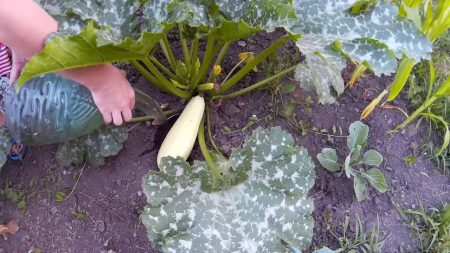 If zucchini decays due to increased humidity, an urgent need to optimize the irrigation regime. Watering is best done on furrows, not often, but plentifully. It is enough to water once every 8 days, pouring 20 liters of water under each plant.
If zucchini decays due to increased humidity, an urgent need to optimize the irrigation regime. Watering is best done on furrows, not often, but plentifully. It is enough to water once every 8 days, pouring 20 liters of water under each plant.
The roots of the zucchini are quite powerful, go deep into the ground. Therefore, when watering, you need to wet the soil 40 cm. After the earth dries, it will not be superfluous to loosen it. Thanks to loosening, the crust on the soil surface is destroyed, the root system of zucchini gets the opportunity to breathe.
To eliminate the increased soil moisture, weeds can be left around the squash bush for some time, and removed later, when the situation with waterlogging is corrected. Weeds for their livelihoods will consume water and, ultimately, will help to quickly eliminate waterlogging.
With an excess of fertilizers
We have already said that with an overabundance of fertilizer bushes of zucchini overgrowth, acquire a large number of leaves that prevent the penetration of sunlight into the bush. Because of this, a zone of high humidity is created in the center of the bush, contributing to the development of various diseases.
- To combat rotting, for this reason, you need to remove excess leaves to ensure uniform illumination of all stems and fruits. Under the fruits of zucchini, thin sections of boards or straw must be placed in order to prevent contact with moist soil.
- Timely remove wilted flowers and parts of plants affected by the fungus from the squash garden, so you can slow down the spread of diseases.
- Stop feeding zucchini with organic and mineral fertilizers, especially those that contain nitrogen.
- Against fungal diseases that affect zucchini, drugs such as Topaz and Ridomil provide a good result. Use them taking into account the waiting period specified in the instructions.
- If you do not like to work with chemicals, replace them with folk remedies, such as:
- infusion of garlic or onion;
- infusion of herbs;
- potassium permanganate.
For diseases
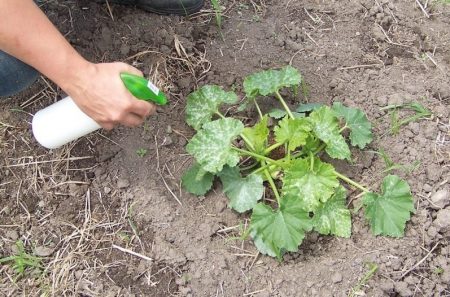 One of the causes of rotting of squash fruits is the disease of culture. Zucchini usually rarely gets sick, but it happens that they can suffer from powdery mildew or white rot.
One of the causes of rotting of squash fruits is the disease of culture. Zucchini usually rarely gets sick, but it happens that they can suffer from powdery mildew or white rot.
When affected by these fungal diseases, the leaves and fruits of the culture become covered with a white coating, consisting of threads of mycelium.
It is possible to overcome fungal diseases using potent chemicals, among which the following are most effective:
- "Tiovit";
- "Topaz";
- Ridomil.
Squash treatment with these agents is carried out by the spraying method and their use is stopped 30 days before harvest.
Prevention, so as not to rot the squash
Any disease, as you know, is easier to prevent than to fight it. Therefore, during the growing season of zucchini, a number of preventive measures must be taken to avoid rotting of the fruits.
The following measures are important:
- Airing landings. Remove old lower leaves that touch the surface of the soil in a timely manner. They are primarily affected by fungi. They are cut with a knife, leaving petioles 4 cm long.
- A day later, after trimming the excess leaves, it is necessary to spray the bushes with a solution of green greens (1 tsp. Per 10 l of water).
- Rejuvenation of the bush should be carried out throughout the growing season, thinning the lashes from old leaves, and prolonging the period of fruiting.
- In inclement weather, cover zucchini plants. To do this, a piece of plastic film stretched on stakes or an old umbrella is suitable. This will save the bush from excess moisture, while maintaining air circulation.
Tips & Tricks
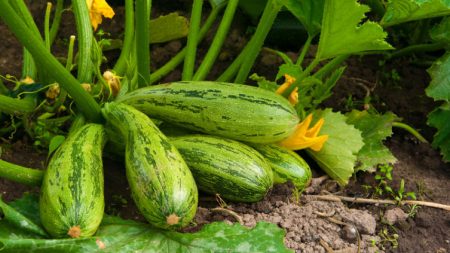 Below are tips and recommendations, adhering to which, you can save the fruits of zucchini from decay and get a decent harvest.
Below are tips and recommendations, adhering to which, you can save the fruits of zucchini from decay and get a decent harvest.
- Pollination of zucchini occurs poorly when the central leaves are closed. To solve the problem, you need to remove several leaves from the bush, leaving the petioles. Penetrating into the center, the sun's rays can dry the powdery mildew mycelium.
- Leaves that you removed and rotting fruits must be taken out of the area and put on fire. This will have a beneficial effect on the harvest of next year.
- If you are going to use a chemical preparation against fungal diseases, then you must do this strictly according to the instructions. Otherwise, leaf burns may occur.
- Iodine deficiency is easy to fill if you spray on the leaves of zucchini with iodine alcohol tincture (30 drops per 10 liters of water).
- Watering zucchini should be rare, but plentiful. Under normal conditions, it is enough to water the crop once a week in summer.
- Do not forget about loosening the soil. Zucchini roots need oxygen. Mulch the soil with straw or sawdust.
- In the flowering phase, perform manual pollination. With a watercolor brush, pollen can be transferred from a male flower to a female. It is even better if there is a beehive with bees at your summer cottage.
- Harmful insects can also spoil the quality of the crop. From the activities of slugs in zucchini, the tips of the fruits rot. You can scare away slugs by sowing crops such as:
- mustard;
- lavender;
- garlic;
- bitter pepper;
- sage.
When growing zucchini, it is also important to timely harvest, otherwise the fruits will outgrow and will not be so tasty. In addition, in this case, the plant will send nutrients to other fruits and the total yield of zucchini will increase.Fungi can be effectively resisted if disease-resistant hybrid zucchini seeds are sown. Using our recommendations, you will save the fruits of zucchini from decay and will certainly get a good harvest.

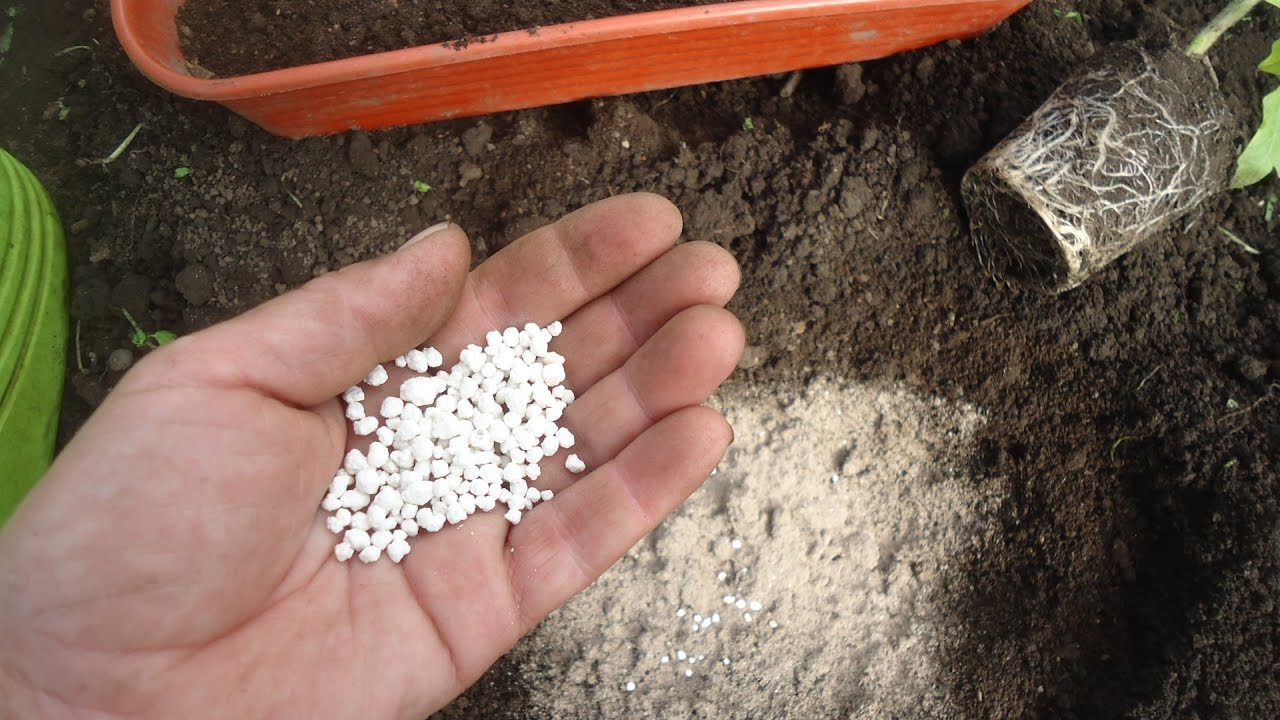
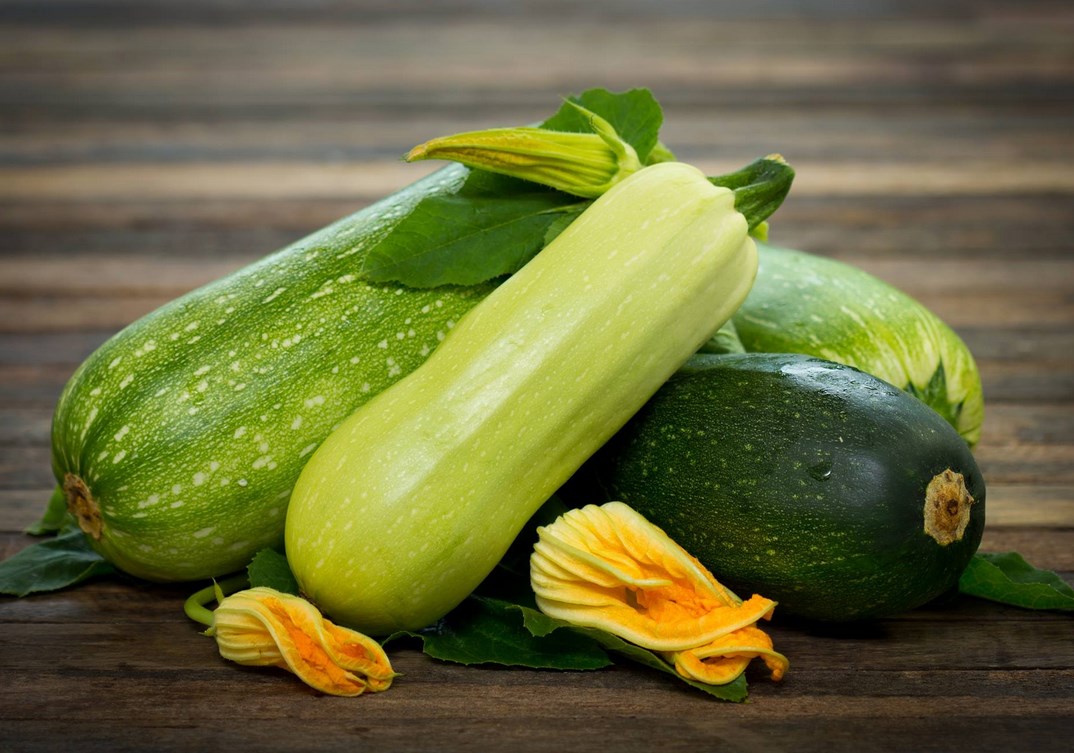
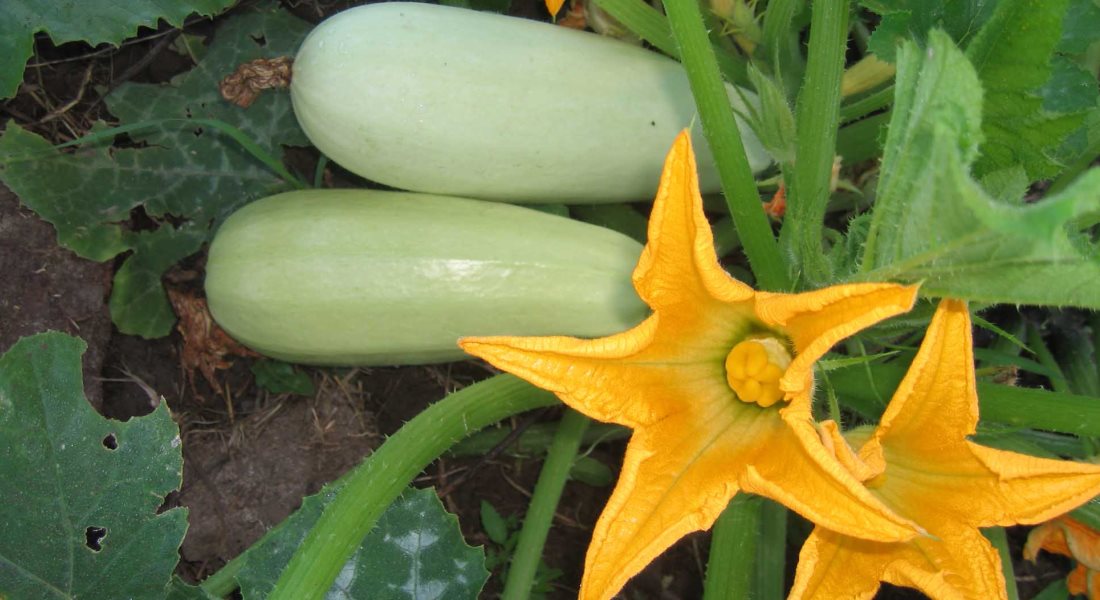
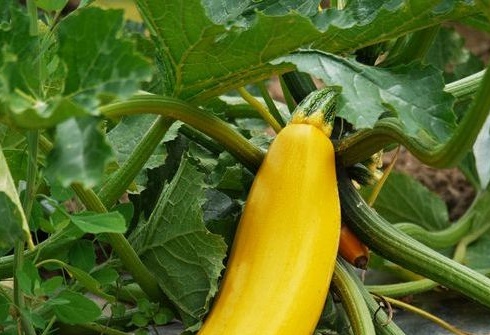 Favorable days for planting zucchini in 2024
Favorable days for planting zucchini in 2024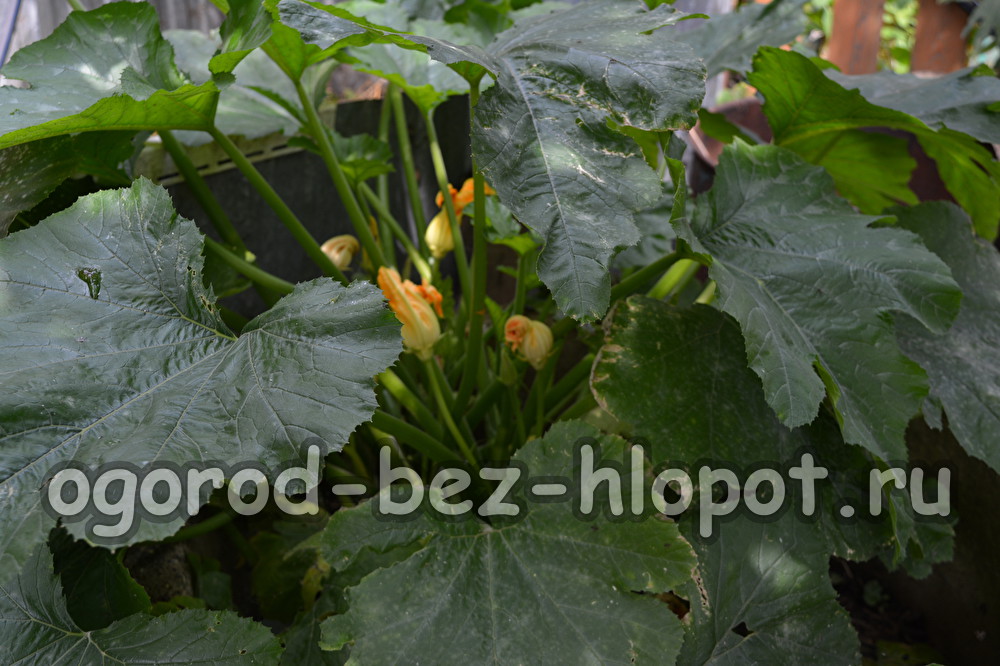 What are the courgettes grown on a warm bed
What are the courgettes grown on a warm bed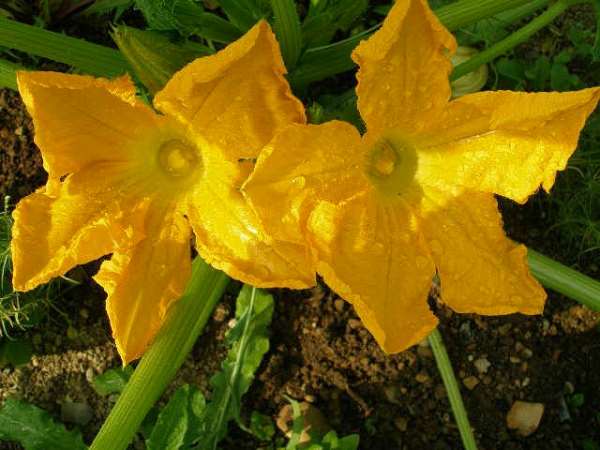 Zucchini only has male flowers, why? What to do
Zucchini only has male flowers, why? What to do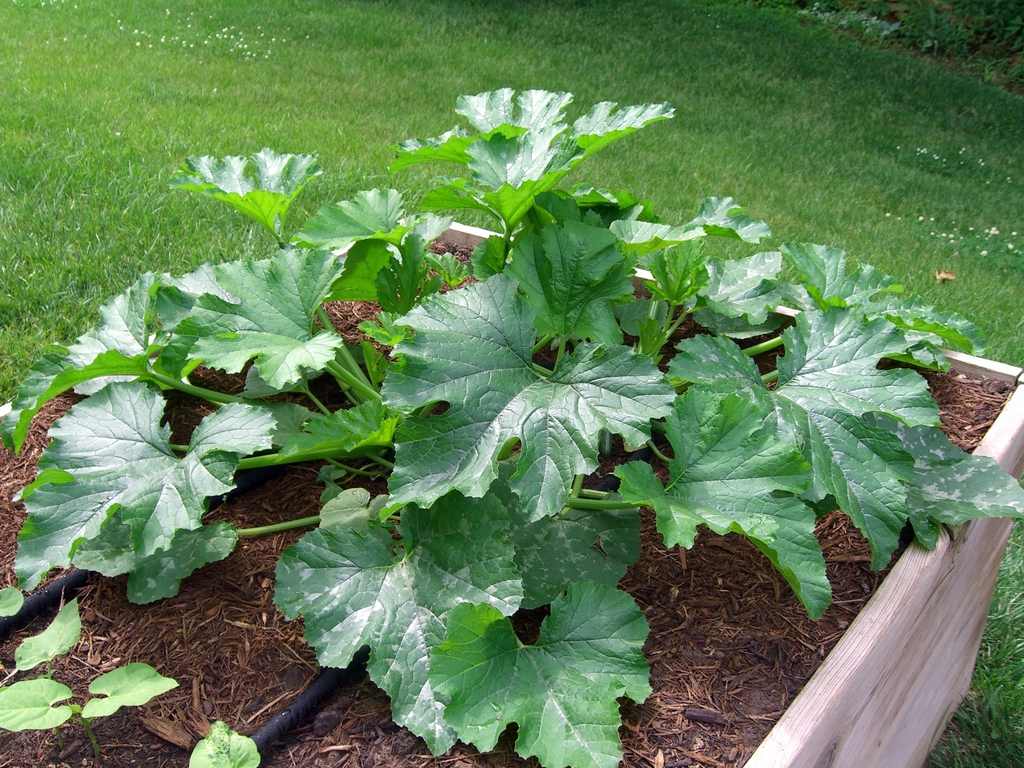 Zucchini grows, but there is no fruit - why?
Zucchini grows, but there is no fruit - why?